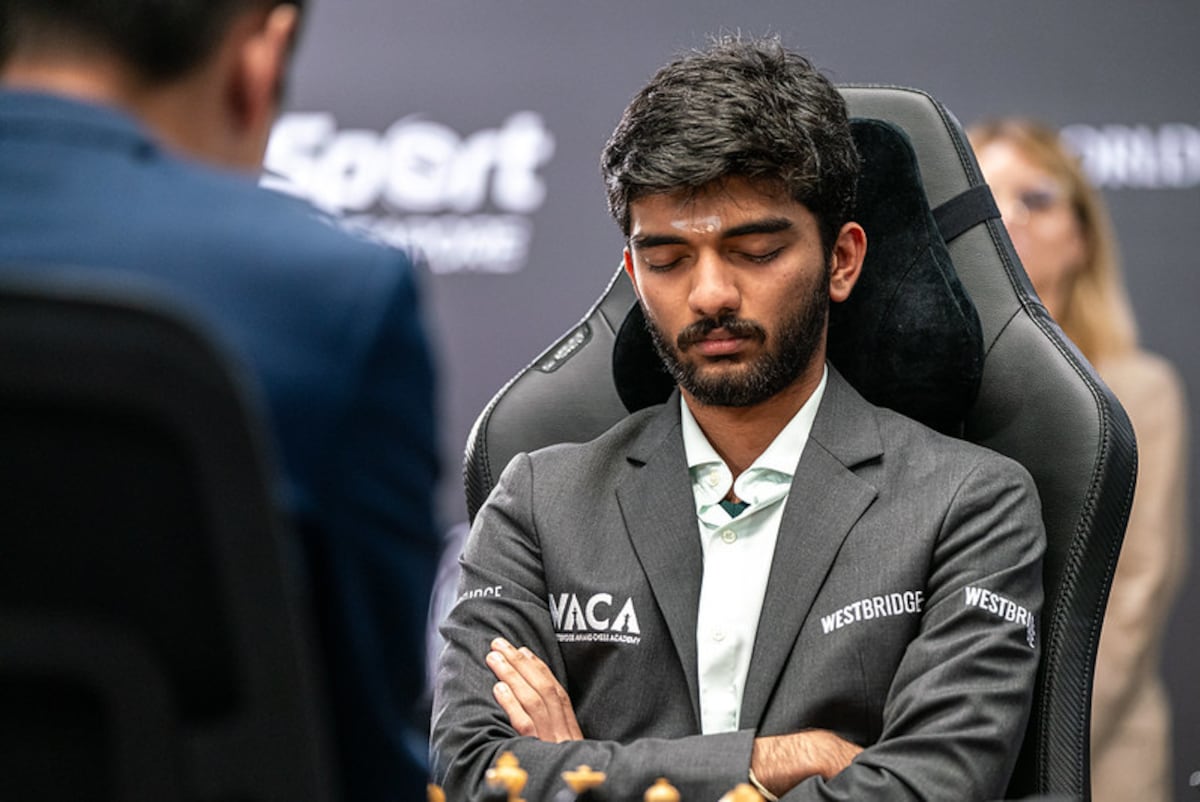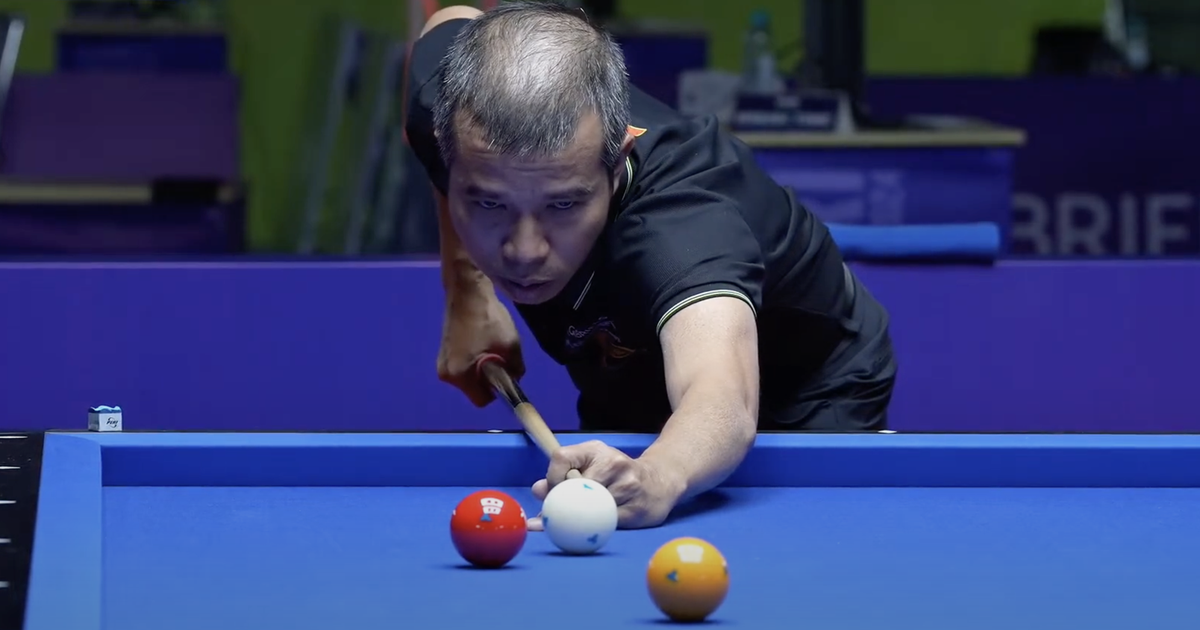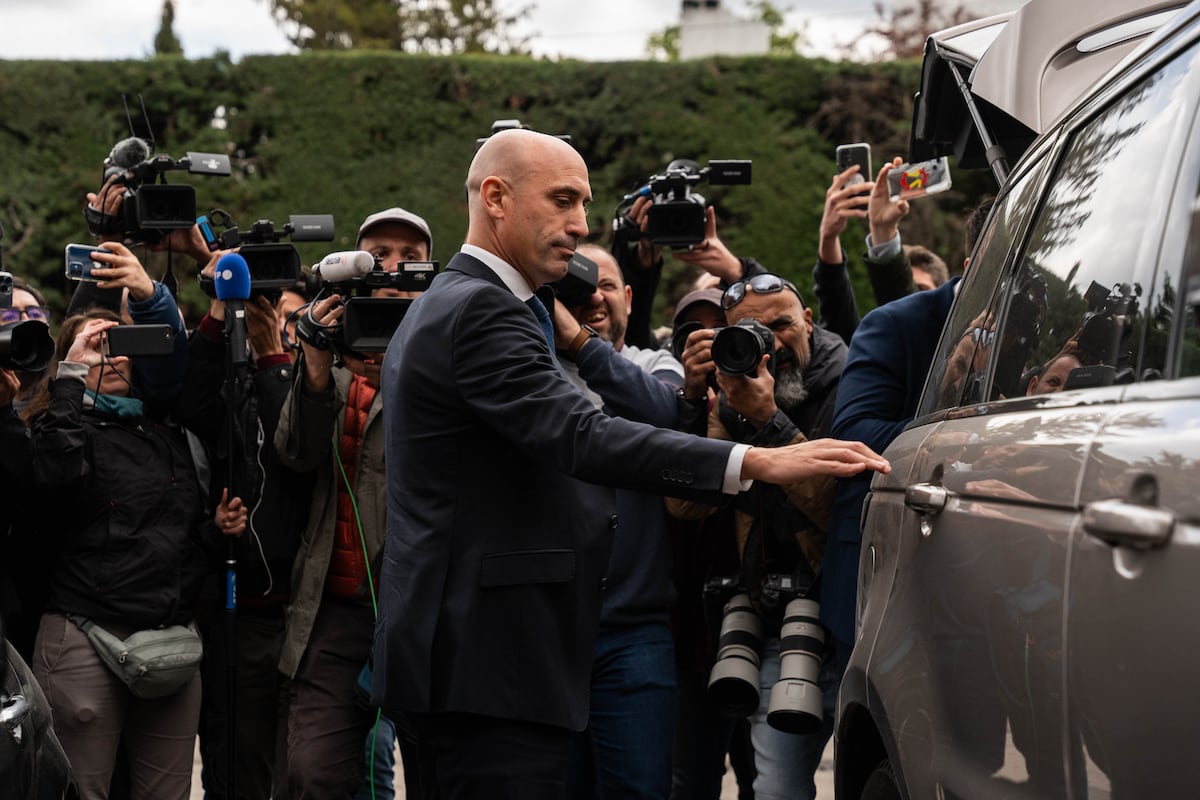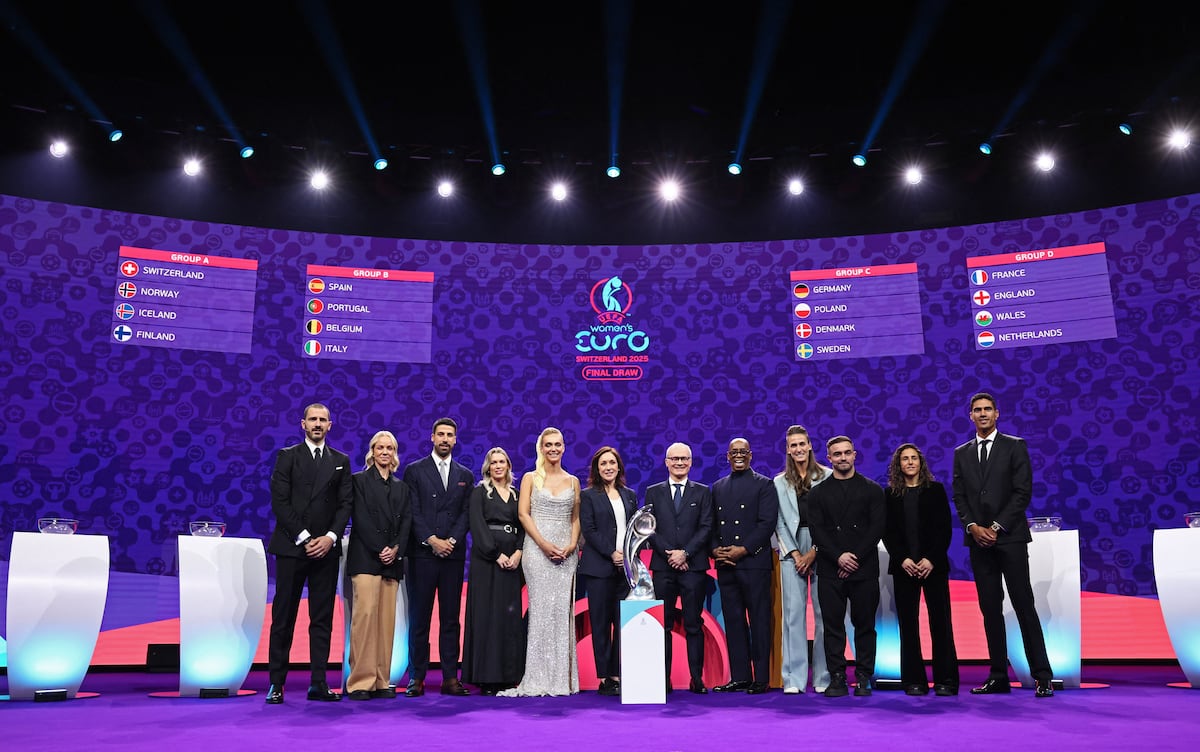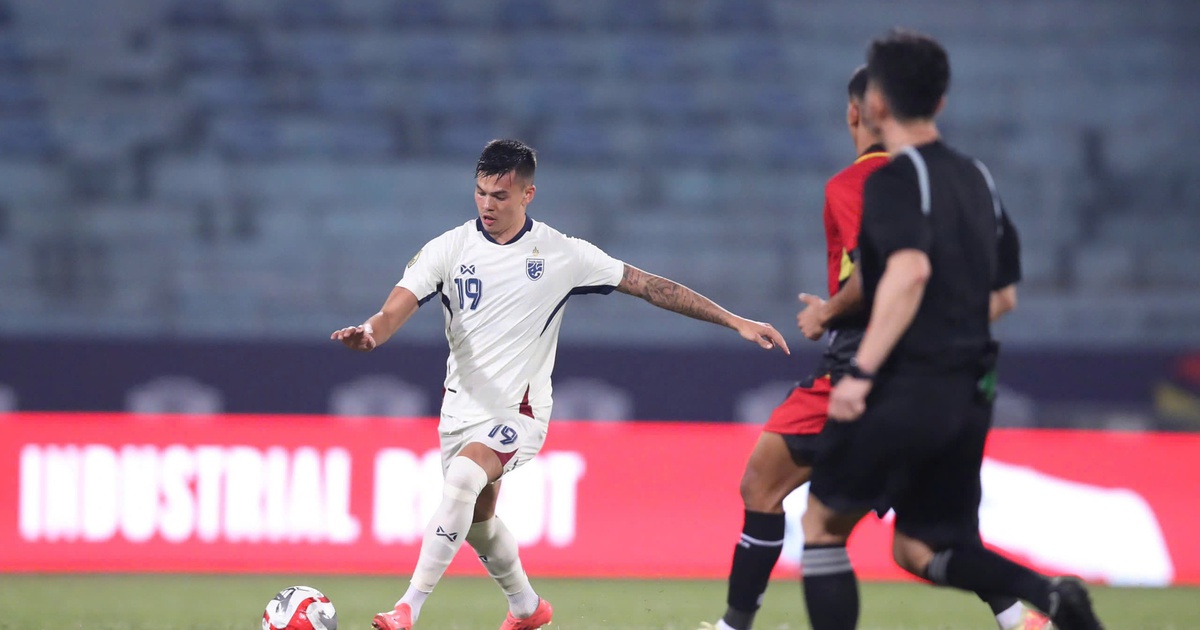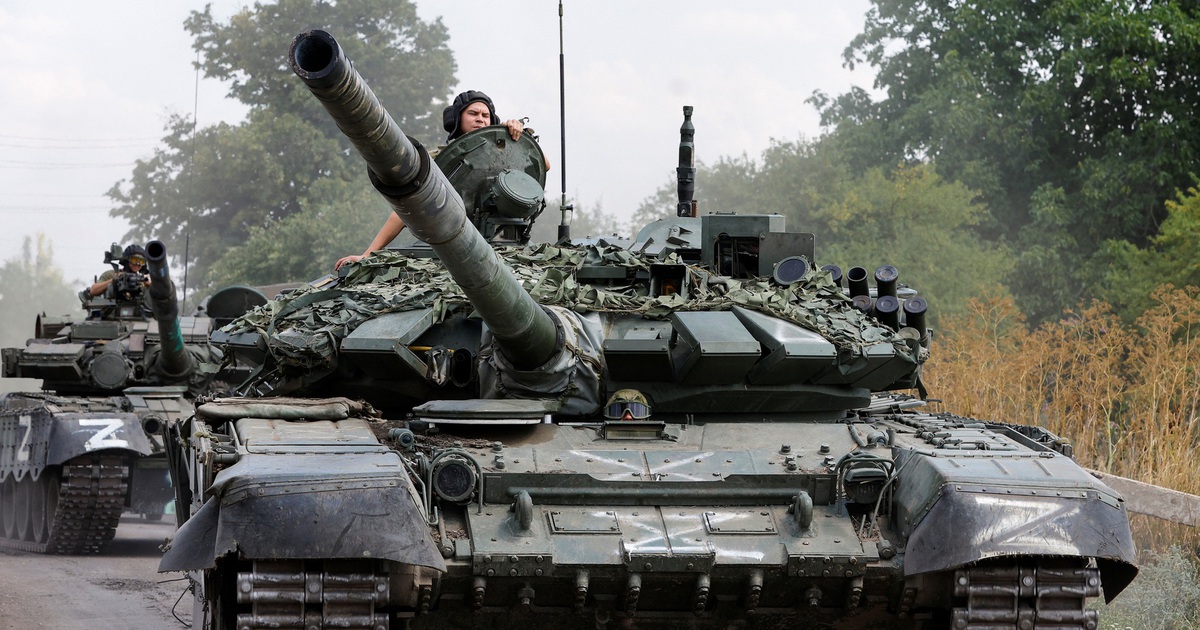The Indian Dommaraju Gukesh will become the youngest world champion in history, at 18 years old, if he wins this Thursday with the black pieces the last round of the duel he plays in Singapore against Liren Ding. But he will need to erase from his mind the memory that the day before he lost a crushing position, as already happened in the 7th and 8th games. The 14th will start at 5:00 p.m. local time (10:00 a.m. in mainland Spain). The Chinese will have the initiative for White with the score tied (6.5-6.5). If the tie is maintained, the title will be decided on Friday in a quick tiebreaker.
Among the events prior to the game was a celebration of the centenary of the International Federation (FIDE), which now brings together 201 national federations. A documentary was broadcast on the history of the World Championships with special emphasis on those with the greatest historical impact, such as the Fischer-Spassky of 1972, in the middle of the Cold War between the USA and the USSR. In those times without computers, players deeply understood the strategic and tactical ideas of the openings they proposed because their preparation required many hours of analysis, with their own brains and that of the team of analysts as the only weapons. This facet of chess is very different today: computers that calculate millions of moves per second tell the player in a flash which variant is good or bad, which does not encourage in-depth analysis; in fact, it discourages doing so.
Gukesh was, again, this Wednesday, a victim of having grown up with silicon chess players and of working with them every day since then. His talent is enormous; his ability to calculate accurately, astonishing; his mettle under pressure, enviable. But he hardly spends time understanding the essence of each position and – consequently – does not follow one of the most valuable pieces of advice from the great champions in history. Like Anatoly Karpov: “When your intuition tells you that you are at a very critical moment in the game, don’t be afraid to invest the time necessary to make the best decision.”
The youngest candidate of all time and his team of analysts, led by the Polish Grzegorz Gajewski, once again surprised the champion in the opening, who invested a whopping 54 minutes in the sum of his tenth and eleventh moves; while Gukesh meditated in his chair, with his eyes closed. The Chinese decision had the advantage of removing his rival from laboratory preparation. But it was objectively bad, because it gave Gukesh the opportunity to mount a very sharp and dangerous attack, although it required careful prior calculation of complicated variants.
It was a very critical moment; so much so that he could place Gukesh half a step away from being the youngest world champion of all time. But the Indian, just when he could take the fight to the terrain of total confusion, where his calculation capacity is so fearsome, invested only ten minutes in the sum of his eleventh and twelfth throws, and discarded the sharp variant that would have given him a position very advantageous and would also have subjected the Chinese to brutal pressure, on the board and on the clock.
Unfortunately for him, and despite the masterpiece he produced on Monday to win the previous game, Ding still hasn’t regained the self-confidence he lost during his year and a half of crisis. Had he done so, his 15th move would have been more ambitious, rather than seeking a likely tying position.
Gukesh didn’t have it all together either: he thought so much about his next moves that he had less time than Ding. The position was only slightly advantageous for the Indian. But, suddenly, when he had several satisfactory defensive plans, Ding began to get tangled, on the clock and on the board, he did not see an elegant tactical resource from Gukesh and he was clearly worse off and with only 20 minutes for fifteen moves.
But the young candidate again, on move 25, fell into haste, giving total priority to the concrete over the profound. That made the champion’s defense much easier. However, Gukesh found a continuation that forced Ding to be extremely precise in defense with only eight minutes for eleven moves.
The champion made a mistake on his thirtieth throw and was lost. But the challenger thought he won in two ways, when in reality he only had one lethal blow, and he chose poorly, allowing Ding to find a saving resource on the brink of the abyss. When they passed control of move 40, the position was already balanced. Ding went to his dressing room, to turn purple from nuts, while Gukesh ruminated on his frustration at the board and tried to mentally adapt to the new situation after four exhausting hours.
The challenger tried to continue playing to win, but the champion was relentless in defense. Gukesh made things dizzy until the fifth hour of play was over. But Ding is a lot of Ding in the very technical positions. Then, at the press conference, he clarified that he will continue playing chess no matter what happens in Singapore – last year he said he was thinking about retiring – and insisted on a very clear idea: “The only thing that matters to me now is what my best strategy for tomorrow’s game. Everything else doesn’t matter to me.”

